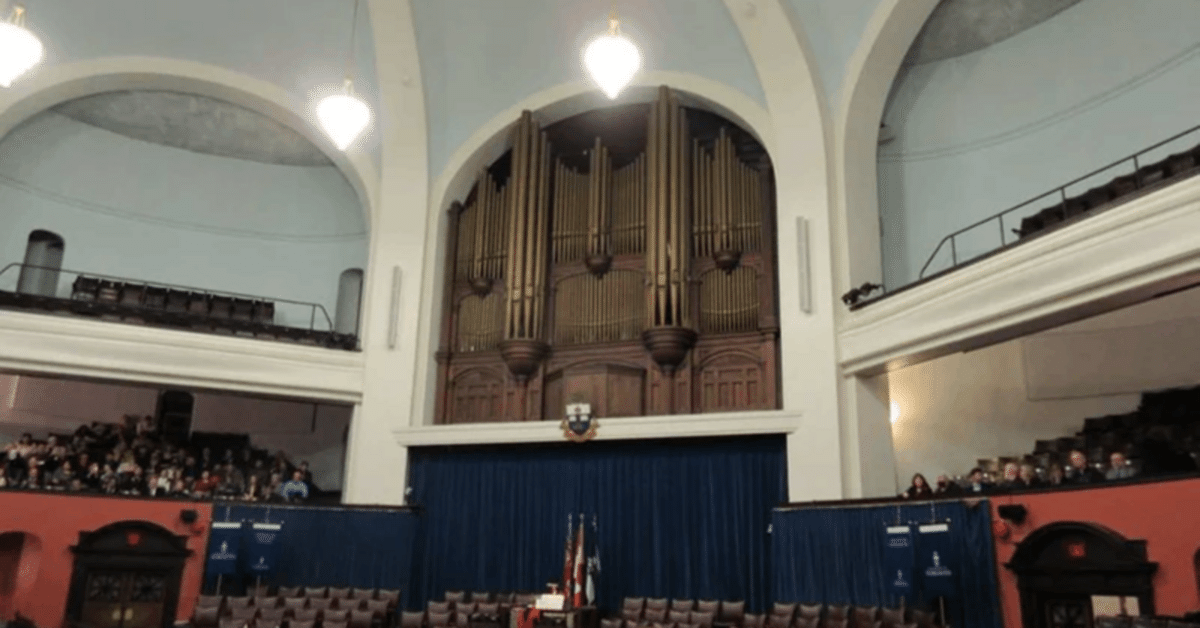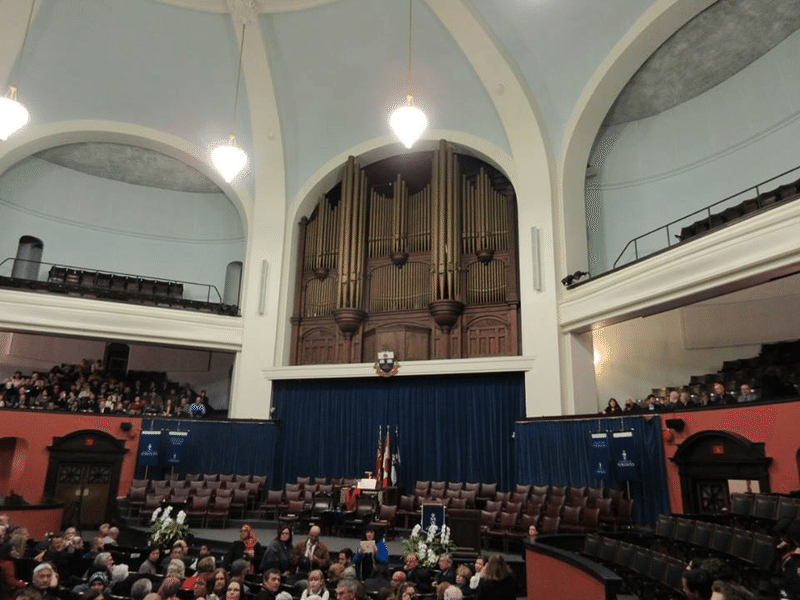
Kei’s Story in Toronto ~In pursuit of diversity 多様性を追い求めて~
This time we're in Canada! Kei recounts his story of studying Political Science at the University of Toronto. How did he throw himself into the forefront of multiculturalism, where diversity is recognized and celebrated in an official manner? Pay close attention to his message!
さて今回は新たなる国カナダに舞台を移しまして、トロント大学大学院でPolitical Scienceを学んだKeiさんからお話を伺います。
多様性が受容され尊ばれる「多文化主義」の最前線に飛び込んだ彼が何を感じたのか、Keiさんからのメッセージに注目です!
(海外体験談のマガジンはこちら。是非フォローしてください^^)
1. 留学のはじまり ~多文化主義を肌で感じたい~
(Hiro) でははじめに、留学された時期、場所を教えてください!
(Kei) カナダのトロント大学大学院(University of Toronto)に平成26年7月から留学し、Master of Arts (Political Science)を取得して平成28年6月に帰国しました。
(Hiro) How long and where did you study?
(Kei) I studied at the University of Toronto from July 2014, and came back to Japan in June 2016 after earning a Master of Arts (Political Science) degree.
(Hiro) どうして留学を志すようになったのか、キッカケを教えていただけますか?
(Kei) 社会人になった時からずっと留学を考えており、一番早い時期である4年目からの留学に照準を合わせて準備しました。
元々父の仕事の関係で、小さい頃、パリに1年半、ロンドンに1年住んでいたこともどこかで影響があったのかもしれません。
また、高校1年生の夏に1か月間の短期留学に行ったのをきっかけにオーストラリアに魅了され、高校2年生時に1年間、大学時代にもう1年間、オーストラリアへ留学しました。
様々な国の留学生と交流する楽しみを肌で感じたことが私のpositiveな原体験として残っていたと思います。
(Hiro) What brought you abroad?
(Kei) I’d been aiming for getting sponsored to study abroad right since I started working in my organization, so I prepared well in advance to realize this vision in the fourth year of my career, which was the earliest to be sponsored. I’d say I was affected by my childhood experiences of living in Paris for one year and a half, and in London for one year due to my father’s job. Also, I got fascinated by Australia where I stayed for a month as a high school student, and revisited there as an exchange student twice (a year in high school and another in undergrad). The joy of interacting with people from around the globe that I felt from these experiences was something that lingered positively in my psyche.
(Hiro) なぜ、その大学院で、そのプログラムで学ぼうと思ったのですか?
(Kei) 私はMulticulturalismを研究テーマとしていたのですが、カナダは1971年に多文化主義を導入した最初の国だったので、そこに身を置いて研究したいと考えました。
トロントはvisible minorityが半数を超えており、バンクーバー、モントリオールと並んで最も多様な市の1つなんです。
また、カナダの政治学を考えた時に、トロント大学が権威のある大学の1つだったということも大きな理由ですね。
出願したのはトロント大学、マギル大学(モントリオール)、ブリティッシュ・コロンビア大学(バンクーバー)、クイーンズ大学(キングストン)の4校です。
(Hiro) Why did you choose the University of Toronto?
(Kei) My plan was to study multiculturalism, which Canada was the first country to adopt as its national policy in 1971. In Canada, Toronto was one of the most diverse cities along with Vancouver and Montreal and more than half of its population identified themselves as visible minorities. Also, the University of Toronto was one of the most prestigious universities when it comes to political science in Canada. I applied to four universities; University of Toronto, McGill university in Montreal, University of British Colombia in Vancouver, and Queen’s University in Kingston.
(Hiro) 私はいまニューヨークに住んでいて多様性を実感していましが、多文化主義があまり政策として根付いているとは感じません。そこがカナダとの違いなのでしょうか?
(Kei) 多文化主義をどのように定義づけるかというのは実は難しい問題です。
個々の政策レベルで考えた場合であれば、例えばカリフォルニア州は複数言語で行政サービスを提供していますね。
ただ、その一方で多様性が社会の強みだという規範が浸透しているかというと、十分ではないように思います。
そういう意味で、Multiculturalismを国の政策として採用しているカナダやオーストラリアは、一歩進んでいます。
もちろん、カナダの場合、多文化主義がカナダ多文化主義法という法律によって位置づけられているという点で特に進んでいるとみてよいでしょう。
(Hiro) Although I’m now living in NYC and literally feel diversity, I don’t think multiculturalism is visible or prevalent here. How is it different from in Canada?
(Kei) How to define multiculturalism is a difficult issue. In terms of specific policies, for example, California provides administrative services in multiple languages. However, the extent to which diversity permeates into people’s norms as the strength of society is I think not necessarily enough. In this sense, I would say Canada and Australia, which adopt multiculturalism as a national policy, are one step ahead. In particular, the official affirmation of multiculturalism in the Canadian Multiculturalism Act is something that makes Canada distinct from other culturally diverse nations.
(Hiro) なぜカナダでそこまで多文化主義が根付いたのでしょうか。やはり歴史の違いですか?
(Kei) フランス系カナダ人の存在が大きいと思います。より丁寧に申し上げると、英国系カナダ人、主にケベック州を中心とするフランス系カナダ人、そしてそのいずれでもないカナダ人の間での国家観の違いが発展的に多文化主義の誕生に結びついたと考えています。
アメリカで独立運動が起こっていた時に、ケベック法というフランス民法典とローマ・カトリック信教を維持することを承認する法律が出来たんです。大英帝国がいわば妥協策としてフランス系住民に一定の自由と自治を認めた形になり、ケベックは独自の文化圏を維持しつづけることができました。
1960年代以降のケベック州では、静かなる革命(Quiet Revolution)と呼ばれる社会改革に代表されるケベックナショナリズムの台頭が見られるわけですが、その一方で、フランス系文化に対して特別な地位を与えることに対しては、ウクライナ系など、非英国系移民からの異論が吹き出していました。
ある意味、カナダは国家のあり方を巡って重大な危機を迎えていたわけですが、そのとき、強烈なリーダーシップを持って汎カナダ主義の立場に立ち、多文化主義の導入によって国家統一を維持したのが今の首相であるJustin Trudeauの父にあたるPierre Trudeauでした。
もちろんPierre Trudeauの役割は非常に重要ですが、そのあとも多文化主義が定着しているとすれば、多文化主義がカナダの抱えるアイデンティティの課題に対して発展的な答えを与えたということが大きいと思います。
(Hiro) I’m wondering why multiculturalism finds its place in Canada. Is that because of its historical uniqueness?
(Kei) French Canadians cannot be neglected in terms of the historical uniqueness of Canadian multiculturalism. I’d say the birth of Canadian multiculturalism is a product of a conflict between different national visions that English Canadians, French Canadians, and non-Charter (non-English and non-French) Canadians conceived. At the time of the American Revolution, the 1774 Quebec Act essentially restored the use of French civil law and guaranteed free practice of the Catholic faith in Quebec. French Canadians are endowed with a certain level of freedom and autonomy as part of conciliatory measures by the British Empire. Accordingly, Quebec was able to maintain its cultural uniqueness. After the 1960s, there was a rise of Quebec Nationalism termed as the “Quiet Revolution”, but there also emerged oppositions to granting special status to French Canadians from non-Charter Canadians including Ukrainian Canadians. At the crossroad of unity and division, then-prime minister Pierre Trudeau, who is the father of the current prime minister Justin Trudeau, maintained Canada’s national unity by exerting strong leadership from the standpoint of Pan-Canadianism, resorting to the official affirmation of multiculturalism. His role was very crucial, but say if multiculturalism is now prevalent in Canada, that’s because multiculturalism served as a progressive solution to the identity crisis inherent in this country.
2. トロント大学のプログラム ~多文化主義の比較研究やカナダでの成立過程研究~
(Hiro) では、大学院のプログラムについて、学生や科目の構成等を含めて詳しく教えてください!
(Kei)トロント大学大学院は、Political Scienceの学科全部は40~50人で、international studentの割合としては半分以下くらい、アジアは他に比べると少ないですが10分の1くらいでした。
私は政治学関係の科目を中心に取りつつ、2件の研究を行いました。
1つ目は多文化主義に関する認識の違いの比較研究です。多文化主義が語られる際、カナダやオーストラリアと、スウェーデンやオランダの間で、それぞれどのような文脈で多文化主義が語られているのかを研究しました。
(Hiro) なるほど面白そうですね!具体的にはどうやって分析されたんですか?
(Kei) 各国議会の議事録からテキストデータを抽出するプログラムを組んだ上で、多文化に関する言葉がどれくらい使われているかやどのような言葉と一緒に使われる傾向があるかを分析しました。
カナダやオーストラリアでは、多文化に関係する概念への言及が多いことに加え、それらが国のアイデンティティを巡る概念とよく使われる傾向があったのに対し、ヨーロッパの中では比較的文化多様性を振興する政策が進んでいるスウェーデンやオランダであっても、多文化に関する概念への言及は少なく、その国らしさとは切り離されて議論されていることが量的にも判明しました。
(Hiro) Then please share with us what you learned in detail!
(Kei) There were 40-50 students at my department (Political Science), slightly less than half of whom were international and some tenth of whom were Asians. I conducted two pieces of research along with taking courses mainly on politics. One is a comparative study on differences in perception of multiculturalism. I studied how multiculturalism is referred to in Canadian/Australian and Swedish/Dutch context.
(Hiro) Sounds interesting? How did you analyze?
(Kei) I created a set of codes with which I could extract text data from each country’s Congress/Parliament debates (Hansard), and analyzed how often words that are linked to multicultural ideas are used and with what words they tend to be. I found, while “multicultural” words are frequently mentioned and together with “national” words in Canadian and Australian debates, they are less frequently mentioned in Swedish and Dutch debates despite their multicultural progressiveness in Europe.
(Kei) 2つ目の研究テーマは、カナダの多文化主義の成立過程です。
かつて大英帝国の植民地であり、イギリス文化の優越性が自明とされていた中でなぜ多文化主義を国の公的な政策として採用することになったかという問題意識を持っていました。
先ほど少し説明したように、カナダが公的な多文化主義を採用し、そしてそれが維持されていることには、構造的な説明がなされなければならないと思います。
ヘーゲルという哲学者は歴史を弁証法的な発展として捉えています。つまり、ある命題があったときに、それに矛盾する命題が生み出され、その矛盾によってこれらの命題が新たなより高次な命題に発展・統合していく、そしてこの連鎖によって歴史が展開されていくわけです。
私はこの弁証法的歴史観を引きつつ、カナダの多文化主義の発展を歴史哲学的に分析しました。
(Kei) My second piece of research focuses on how multiculturalism developed in Canada. I was wondering why this country eventually adopted multiculturalism as its national policy although it was once occupied by the British Empire and the superiority of the English culture was sort of evident. And as I mentioned earlier, I thought that the rationale for officially adopting and maintaining multiculturalism should be systematically explained. My study built upon Hegel’s idea of dialectical development of history, which basically says that a proposition generates another which contradicts the original one, and this conflict gives birth to a new integrated proposition, and that the repetition of such procedure explain the development of history. I analyzed the development of Canadian multiculturalism, resorting to this concept of dialectical development of history.
3. 留学中の所感 ~一斉授業はなし、アフリカの教員政策支援も~
(Hiro) 授業スタイルは日本の大学、あるいは大学時代のアデレードの時との違いなどは感じましたか?
(Kei) トロントの時は一斉の大きな授業はなくて、全てがセミナー形式(15~20人)の授業でした。
最初から学生が議論して、必要に応じて先生が解説をする形です。オーストラリアの時は大教室とセミナー形式が組み合わさっているイメージで、日本の場合はゼミなどを除きほとんどが大教室の授業でしたね。
ただ、MasterとBachelorという学位の違いももちろんあると思います。
(Hiro) 留学前と後でのギャップ(驚いたことなど)はありましたか?
(Kei) カナダという国の過ごしやすさに驚きました。
留学する人たちのなかには日本が恋しいという人もいるでしょう。しかし、私は全く不便を感じることがなかったです。
また、トロントは多様な文化バックグラウンドを持っていることが当たり前の場所ですので、差別や偏見のようなものを感じたこともほとんどありませんでした。
(Hiro) Did you feel any difference in styles of learning between in Toronto, Adelaide and Japan?
(Kei) In Toronto, all of my courses were conducted in a seminar style (15-20 students). Students were supposed to participate in discussion from start to end, and the faculty jumped in only when necessary. In Australia I experienced both seminar and lecture styles, and in Japan most of them were in a lecture style. The style difference may also be attributed to the nature of the degree program.
(Hiro) What surprised you?
(Kei) I was surprised by how comfortable life in Canada is. I know that there are students studying abroad who miss their home country, but it was not my case. In addition, I did not experience any sort of discrimination while in Toronto, where having diverse cultural backgrounds was pretty much common.

(Hiro) 留学中に身に付けた、あるいは気付いたご自身の強みを教えてください!
(Kei ) 留学中にIICBA(International Institute for Capacity Building in Africa)というユネスコのアフリカ唯一の研究所(地域事務所とは異なる)で、アフリカ各国における教員政策の策定支援などを行いました。
アフリカの教員政策の問題点として、養成・採用・研修を通じた一貫した教員政策が未発達の国が多く、それを改善するための支援が内容です。
(Hiro) どのような課題が背景としてあるのでしょうか?
(Kei) アフリカの多くの国では、かつての植民地支配や国際機関による援助の構造などを背景に政府機関の政策策定能力が弱い傾向にあります。
そのため、アフリカの国の政府が自分で政策立案をできるようなcapacity-buildingをする、そのためのConsultingという訳です。
私がIICBAで働いた際の最初の仕事はウガンダの教員政策の支援でした。
(Hiro) What kind of strengths did you acquire or find during the time abroad?
(Kei) I went on an internship at IICBA (International Institute for Capacity Building in Africa), the only UNESCO institute in Africa (different from regional offices). I was engaged in helping African governments create teacher policies that are coherent from pre-service to in-service development.
(Hiro) What led to this current situation?
(Kei) Their capability of designing policies tend to be weak due to structural issues created and exacerbated by colonization and authoritative assistances from international organizations. Therefore, helping African governments to properly create policies by themselves is exigent. My first tast at IICBA was to help the Ugandan government create teacher policies.
4. これから ~多様性を受容することを国の美徳とする文化の定着に向けて~
(Hiro) もし、将来の展望などあれば教えてください!
(Kei) 留学先で出会った多文化主義という考え方は、今や私自身のライフワークになっています。
日本が多文化主義を導入すべきだとは思っていないのですが、カナダやオーストラリアから学ぶことは多々あると感じました。
すなわち、多様性を受容するということを国の美徳(Virtue)として捉えていく文化の定着が非常に重要だということです。
日本でも最近LGBTに対する考え方や移民政策に対する考え方など、多様性に対する認識が少しずつ変わってきているように思います。
(Hiro) What’s your future plan?
(Kei) The concept of multiculturalism which I encountered during the time abroad has become my lifework. I don’t necessarily think Japan should adopt multiculturalism, but there are a lot to learn from Canada and Australia. In other words, our society needs a norm that regards acceptance of diversity as a virtue. I think Japanese people’s attitude towards diversity has been changing gradually as shown by such topics as LGBT and immigration.
(Hiro) 留学をしての気付き、メッセージをお願いします!
(Kei) 社会人留学をする前は、他の職場で働いた経験がなかったので仮に今の仕事を失ったとしても他の場所で働くイメージや自信があまりありませんでした。
それが、IICBAでインターンをした時に、国際会議でアフリカ各国の政府代表に対して質疑応答を行ったり、教員研修のプログラム策定のための予算書を作成したりしたことで自分の強みを認識できるようになりました。
変な言い方かもしれませんが、今は仮に今の職場を去ったとしても自分の強みを生かして国際機関など、他の場でも活躍しながら働いていけるという自信があります。
でも、そういう安心感があるからこそ今の仕事をより自信を持ってできるようになったように思います。
普段はなかなか気づかないような自分の強みを認識できるようになるのも留学の醍醐味だと思いますので、是非恐れずにチャレンジしてみてくださいね!
(Hiro) Please share your passions with readers!
(Kei) Before going to Toronto, I did not have confidence in myself in a professional sense; I wasn’t sure whether I will be able to find a different career should I quit my current job. However, I realized my professional strengths through conducting a Q&A session with government representatives from African countries in an international conference, drafting project documents for budgeting and other various professional experiences in IICBA. You might think it strange, but I am now convinced that I could work at other places like international organizations given my strengths. In turn, this sense of confidence makes me perform my current tasks with more confidence. I believe that one of the main takeaways from studying abroad is that you can recognize your strength which you would not have otherwise, so don’t be afraid and challenge yourself!!
Keiさん、インタビューに答えて下さりありがとうございました!
日本のこのいわば精神的な鎖国を解消していくためには、多文化主義の視点は確かに欠かせないですよね。
日本にも少しずつ寛容性が根付いていくよう、お互い頑張っていきましょう!
Thank you Kei for letting me have an interview with you! I believe the concept of multiculturalism could be a key lever for alleviating this current situation of “a mentally closed country” of Japan. Hope tolerance toward diversity would gradually be embedded in Japanese society!
(※本ポストは、2018年1月時点のものをリメイクしたものです。)
この記事が気に入ったらサポートをしてみませんか?
